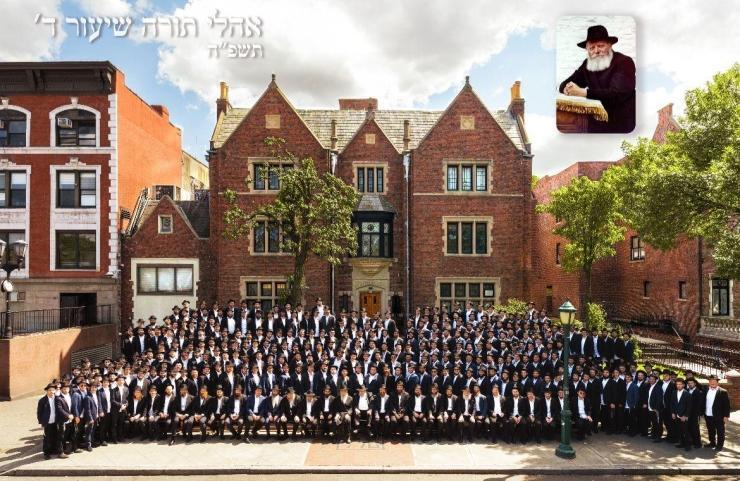‘Chabad’ & ‘Lubavitch’ Cannot be Copyrighted
In a ruling on applications to register the marks CHABAD (232770) and LUBAVITCH (232771) in Latin and Hebrew scripts in the name of Chabad Hasidic Association in our Holy Land and Young Chabad Association, the trademarks registrar has refused registration of the said word marks • Full Story
In a ruling on applications to register the marks CHABAD (232770) and LUBAVITCH (232771) in Latin and Hebrew scripts in the name of Chabad Hasidic Association in our Holy Land and Young Chabad Association, the trademarks registrar has refused registration of the said word marks, holding that the marks were descriptive of the Jewish religious movement dating back to the 18th century and therefore were not distinctive and should be left open to the public.
One of the best-known Jewish Hasidic movements, Chabad, originated in the late 18th century in Western Russia and is also referred to as Lubavitch, after the name of the small Russian village of Lyubavichi where the spiritual leaders of the movement resided in the 19th century. The name ‘Chabad’ is a Hebrew acronym for ‘wisdom, understanding and knowledge’. Under the Lubavitcher Rebbe, Chabad grew to a network of institutions providing educational, religious and humanitarian outreach in many different countries and establishing community centres, synagogues and schools.
In 2010, two Israeli non-profit associations, Agudat Hasidei Chabad (Chabad Hasidic Association in our Holy Land, an Israeli branch of Agudas Chassidei Chabad, a worldwide umbrella organisation of the Chabad movement) and Tzeirei Agudat Chabad (Young Chabad Association, purportedly the first applicant’s executive body), applied to the Israel Patent Office (IPO) for the registration of the word marks LUBAVITCH and CHABAD in Hebrew and Latin scripts. Registration of the marks was requested for a variety of goods (eg, publications, clothing, embroidery, games, toys and foodstuffs) and services (eg, advertising, business administration, financing, donation services, educational services, scientific and technological services, design and development of computer software and hardware, catering, accommodation, ticket booking and charity).
The IPO examiner refused registration of the mark CHABAD, citing the mark’s lack of distinctive character required by Section 8(a) of the Trademarks Ordinance (New Version), 5732 – 1972 in respect of the goods and services for which it was requested, in that the mark described a Jewish Hassidic movement (comprising many organisations, institutions and communities), philosophy or mode of life and thus could not be taken out of the public domain. The examiner further based his refusal on Section 11(5) of the ordinance in that registration of such a mark in the name of a specific entity would be liable to contravene public order and morality, in that it would deprive others of use of the name of a religious movement or mode of life, which should remain public.
The mark LUBAVITCH was refused for the same reasons, as it had become identified with the religious movement, as well as on the grounds of Section 11(11) of the ordinance, which bars from registration names with a geographical meaning unless they have acquired secondary meaning.
In a hearing before the trademarks registrar, the applicants argued that non-registration of the marks would lead to possible confusion of the public as a result of misrepresentation by entities pretending to act in the name of Chabad.
The applicants adduced evidence purporting to show that they were the entities within the Chabad movement that were authorised to represent the movement to the outside world and that such a role was expressly authorised by the Lubavitcher Rebbe, the movement’s spiritual leader (an argument not duly substantiated by evidence in the opinion of the registrar). The applicants, among other things, adduced treatises on the history of Chabad in Israel and abroad, and contracts with Chabad emissaries.
The applicants alleged that the propounded names were not in the public domain, but rather that it was due to the applicants’ activity over the years (with each being active for several decades) that the names became known to the public. They further argued that the geographical meaning of the mark LUBAVITCH was not relevant to the public, who would identify Lubavitch with the Chabad Hasidic movement, and that the movement’s spiritual leaders for most of its history did not reside in Lyubavichi.
The registrar held that the applicants had failed to substantiate the claim that they were expressly authorised by the rebbe to represent Chabad for the purpose of registration of the marks or to provide the consent of all other Chabad entities to be so represented. The registrar further held that no one following the tenets of the Chabad teaching could be prevented from representing himself or herself as a follower of Chabad.
The registrar held that, given that the words ‘Chabad’ and ‘Lubavitch’ were not exclusively identified with the applicants, but were used by the general public to refer to the religious movement, its teaching and its mode of life, they did not meet the threshold criteria of registrability as to a distinctive character. The registrar also held that the marks lacked an inherent distinctive character and that, as to secondary meaning, the applicants failed to show that they acquired and owned goodwill in the commercial context which was distinct from the public domain. With regard to the importance of proving ownership of the goodwill, the registrar referred to the ORT matter (CA 5207/08 [2011]]).
Addressing the applicants’ claim that they were the bodies competent to authorise others to use Chabad’s name, trademark or goodwill, the registrar noted that such a claim would have been appropriate in an application for a certification mark in accordance with Section 14 of the ordinance (which, the registrar opined, may nevertheless have been similarly unsuccessful in light of the other determinations in this decision).
The registrar emphasised that the Chabad movement was established in the 18th century and enjoyed the leadership of seven consecutive Lubavitcher rabbis; and while it gained unprecedented recognition on the part of the general public under the guidance of the rebbe since 1951, the teaching and the international religious movement crystallised before the applicants and other Chabad institutions were established, and its 230-year history could not be disregarded. The registrar had regard to a 2004 court decision in Israel, in which the Haifa District Court refused the request of one of the current applicants to enjoin another Chabad non-profit organisation, The Tents of Menachem Lubavitch, from making use of the words ‘Lubavitch’ and ‘Chabad’, holding that the applicant did not represent the Chabad movement in its entirety.
The registrar held that the applicants failed to prove they had exclusive authority over the affairs of the Chabad movement in its broad sense and, in particular, over the wide range of goods and services for which registration was requested. Contrary to the applicants’ claim, they enjoyed no special status with the registrar of Amutot (non-profit organisations) in Israel, the registration department of which noted in 2011 that the applicants did not represent all the factions in the movement. The registrar also had regard to the fact that the applicants made use of the word ‘Chabad’ in stylised form and accompanied by wording “wholeheartedly toward everyone”, as evidencing the need for the applicants to distinguish themselves through the use of stylised design and additional wording. It was also noted that the second applicant in its contracts distinguished between its specific name and the general name ‘Chabad’, from which it distanced itself in business contexts.
The registrar concluded that the applicants failed to show that they were the rightful owners of the marks, had these been registrable. Moreover, it was held that the names ‘Chabad’ and ‘Lubavitch’ should remain open to the public, and in this case the interests of free speech and freedom of occupation prevailed over the interest of preventing confusion, which is not all-important and which moreover in this case was not clear-cut due to the applicants’ failure to prove ownership of the marks. In the context of non-commercial interests overruling commercial considerations, the registrar cited Section 11(5) of the ordinance, which bars from registration marks that prejudice or are liable to prejudice public order or morality.
The registrar cited the US case of Christian Science Bd of Directors v Evans, 520 A.2d 1347 (NJ 1987), in which the Mother Church/First Church of Christ, Scientist, as the organisational structure of the Christian Science religion, unsuccessfully sought to enjoin the use of ‘Christian Science’ or ‘Church of Christ, Scientist’ by the defendants in reference to their church, and in which the New Jersey Supreme Court distinguished between the religion and the organisation where the religion pre-existed the organisation and held that the name ‘Christian Science’ was generic. A similar ruling of the Trademark and Trial Appeal Board regarding the Seventh-Day Adventist religion and the Seventh-Day Adventist Church, made in the US case of Stocker v General Conference Corp of Seventh-Day Adventists, 39 USPQ 2d 1385 (TTAB 1996), was also mentioned.
The registrar held that the fact that third parties followed the Chabad teaching without being supervised by the applicants would not lead to public confusion when using the names ‘Chabad’ and ‘Lubavitch’, and depriving them of the use of such names would amount to restricting free speech and freedom of religion, contrary to Section 11(5) of the ordinance.
The registrar concluded that the names ‘Chabad’ and ‘Lubavitch’ referred to the religious movement in the broad sense, rather than to the organisational structure represented by the applicants.
The marks were refused registration (decision dated May 22 2016).
David Gilat and Sonia Shnyder, Gilat, Bareket & Co, Reinhold Cohn Group, Tel Aviv
293
Join ChabadInfo's News Roundup and alerts for the HOTTEST Chabad news and updates!









































It’s been the same in the U.S. for years.
‘Chabad’ is not copyrighted, not trademarked, and can be used freely (though certain baatei dinim will say it is restricted, based on politics).
There are cases that were brought in the 1980-90’s that show Chabad is fair game.
‘Lubavitch’ is a place. According to US law, names of places cannot be copyrighted or trademarked.
Everyone can use either name for anything.
Mixed feelings.
On the one hand no one person or one mosad or one shita should have authority on these names. On the other hand why should it be a free for all?